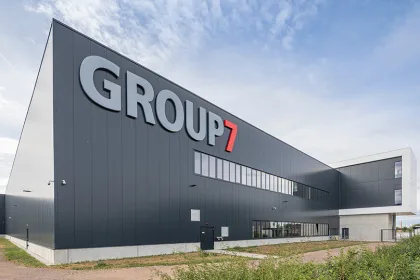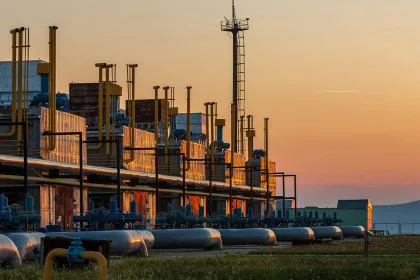Gillian Huart, Managing Director of Sustainability Solutions at ENGIE Impact, walks us through the main excuses companies are making to avoid sustainability commitments, and how each of them can be navigated to prioritise the environment.
TAKING SUSTAINABILIY SERIOUSLY
Sustainability commitments reached an all-time high in 2019, growing in both number and ambition.
However, for the majority of businesses they’re not fully embedded in the organisation or part of their core operations – in fact, less than 25 percent of corporations are on pace to achieve their own carbon targets. The time has come where the reasons and excuses for this have, on the whole, expired.
Here are the main excuses that won’t be accepted in 2020.
“OUR STAKEHOLDERS DON’T CARE ABOUT ‘GOING GREEN’”
The Davos Manifesto 2020 is evidence that companies have shifted their notion of value creation, stating that companies must not only serve shareholders, but all stakeholders, including employees, customers, suppliers and communities. The reason is simple – stakeholders are increasingly placing pressure on employers and brands to invest in sustainability.
Employees, for example, prefer working for companies with sustainable business practices. 90 percent of millennials, which will soon make up 75 percent of the workforce, cite sustainability as a crucial consideration when selecting an employer.
Consumers value sustainable goods more than ever. According to research from the Center for Sustainable Business, 50 percent of the growth in consumer packaged goods came from sustainability-marketed products. The majority (66 percent) of consumers are even willing to pay more for sustainable goods.
Sustainability goes beyond the operations within a company though. The supply chain must also transform. Major global buyers are aware of this and 95 percent of them surveyed by CDP are using environmental metrics to manage supplier relationships, or plan to within two years.
“WE SET GOALS, BUT STRUGGLE TO GET ENGAGEMENT”
Like any transformation, sustainability initiatives are cross-functional in nature and often face organisational barriers. By focusing on the human dynamics of change, some corporations have demonstrated the ability to achieve impressive results in their transformation efforts.
Successful companies are putting sustainability at the core of organisational design, connecting sustainability goals with business strategy and company culture. Committed executives are taking responsibility for results – at IKEA, each country leader, responsible for significant P&Ls, is also a Chief Sustainability Officer (CSO) of their region, driving education and engagement across the organisation.
Facilitating the behaviours of collaboration and innovation are key, since they uncover new ways to meet sustainability objectives. Leaders must be armed with the language and tools to inspire and reward innovative, collaborative thinking. Employee ideas must then be heard and, where suitable, implemented.
We’ve seen first-hand how good governance and formal processes accelerate results. The development of dedicated cross-departmental working groups with clear charters, dedicated resources and executive sponsorship helps to achieve successful transformation efforts.
“WE DON’T HAVE THE FUNDS FOR IT THIS YEAR”
Finance is one of the biggest limitations of sustainability transformation. However, new financial mechanisms are helping companies address common financial hurdles such as limited available capital and strict payback periods.
The business case for sustainability transformation has never been stronger. The declining costs of technology, growing supply of renewable power, availability of sustainable-debt insurance and sustainability-linked loans, policy incentives, and the emergence of new sustainable revenue streams are changing how sustainability programmes are funded.
There are also more flexible performance-based financing mechanisms, like as-a-service models, which help companies solve both financial and capability gaps. As-a-service models provide access to capital-intensive technologies alongside the expertise to manage them, enabling companies to implement new, clean technologies with minimal financial and operational risk.
“CLIMATE CHANGE WON’T AFFECT OUR PROFITABILITY”
The long-term effects of climate change are having near-term impacts on business, in a number of different ways.
In 2019, carbon prices under the EU Emissions Trading Scheme reached an 11-year high and we’ll likely see the price of carbon continue to increase. Even those companies ignoring their duty to tackle climate change who are opting not to implement carbon mitigation strategies must consider moving to become zero-carbon, otherwise their costs could become unreasonable.
Then there’s the climate-related extreme weather events, which are increasing in frequency, impact and cost. The 33 European Economic Area countries have experienced a collective loss of €13 billion per year since the turn of the decade due to climate disaster events.
“WE CAN’T ACCESS THE DATA TO MAKE ANY DECISIONS”
Lack of insight and data is a common problem for businesses. However, new technology has vastly simplified the complex data landscape in recent years and the Internet of Things (IoT) makes granular data widely available in real-time.
The advanced analytics made possible by this data is already helping to optimise resource usage. Google used artificial intelligence to optimise its data centres and reduce cooling bills by 40 percent, while Huawei’s IoT smart water meter application helped the city of Yingtan in China to save 2.4 million tonnes of water by reducing its water leakage rate to 12 percent.
The fact that the technology is increasingly available at a lower cost is a major component in accelerating sustainability transformation. For example, the average price of an IoT sensor has dropped 70 percent compared with 15 years ago. The decrease in costs is expected to continue, as both traditional energy players and horizontal software providers are investing in developing, deploying and offering new tools that enable companies to scale their programmes.
There’s no doubt that the scale of transformation needed to tackle climate change is significant, but businesses, cities and governments around the world are already proving that what was yesterday’s barriers are today’s and tomorrow’s opportunities. It’s clear that the days of relying on excuses to justify slow progress on sustainability efforts are over. Moving forwards, it’s the businesses that can implement solutions at speed and scale that will capitalise on those opportunities and lead the pack in the future.

































